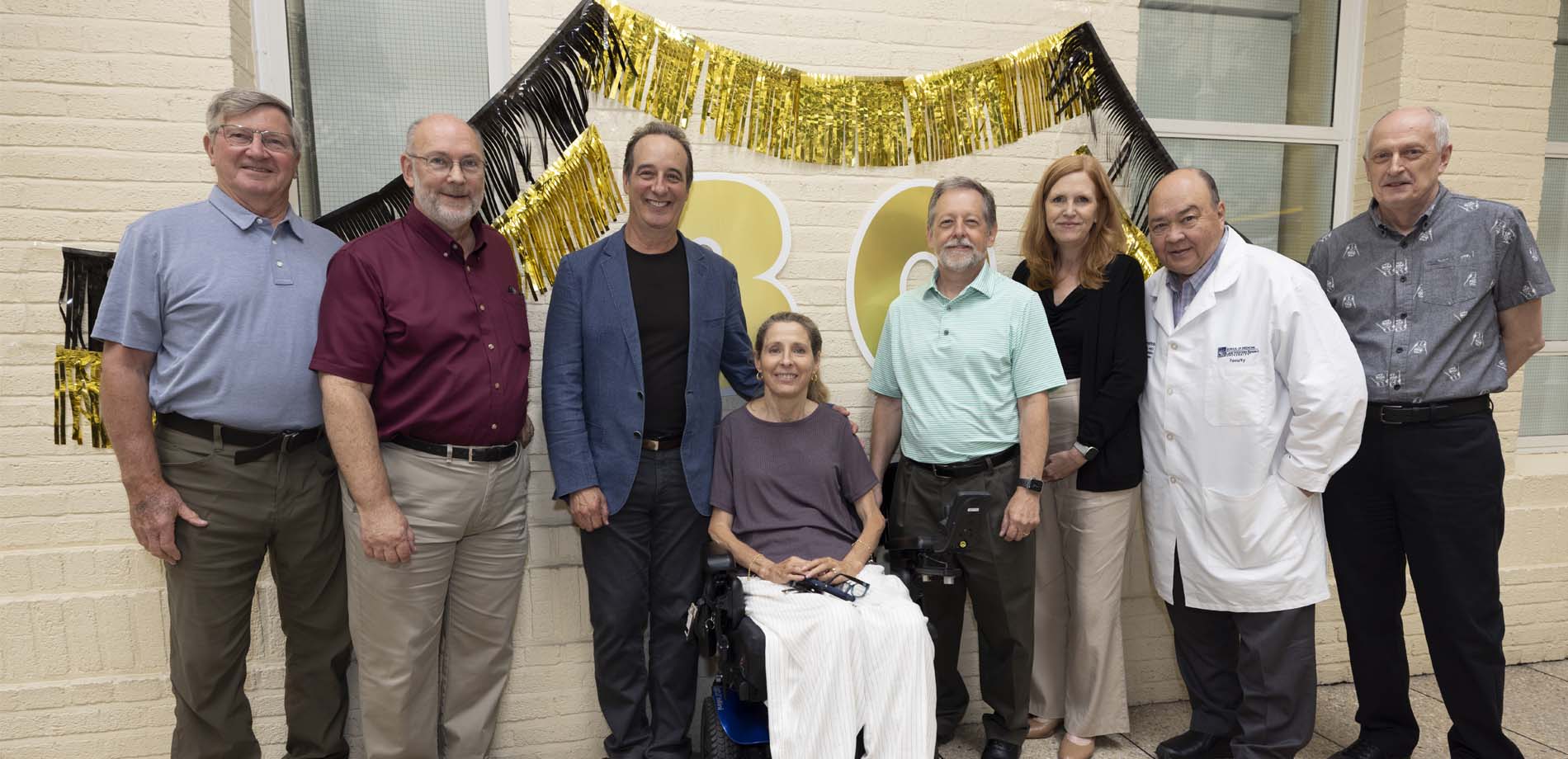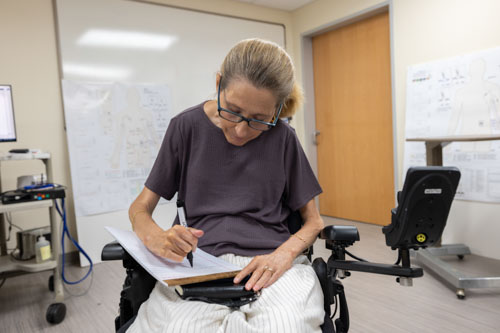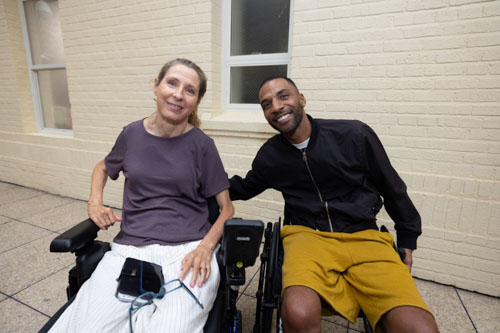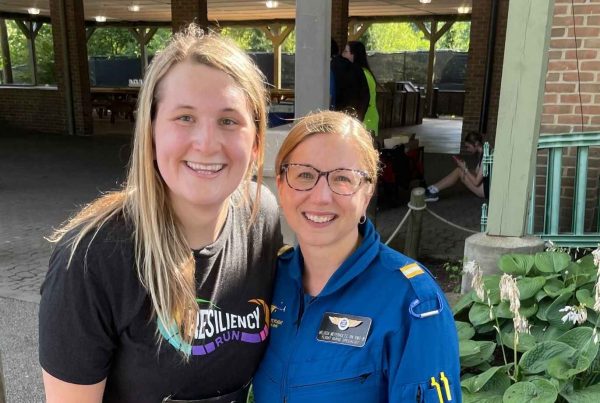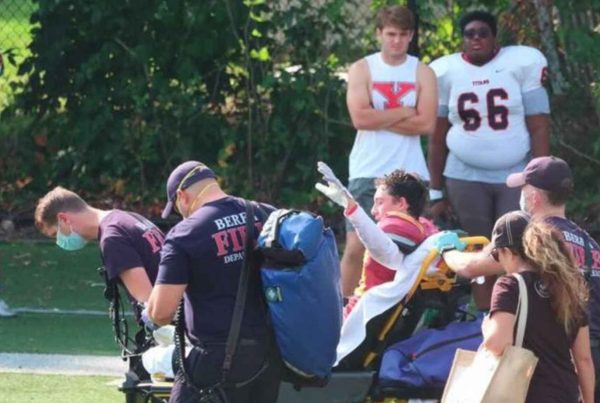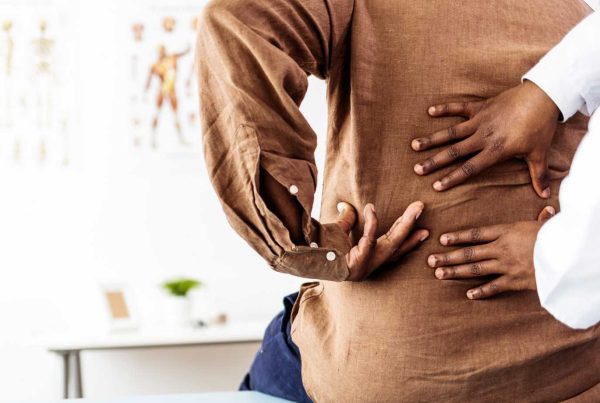Five years after a diving accident left her paralyzed, Jeanette Green received an implantable device invented and designed by researchers from MetroHealth and Case Western Reserve University. Thirty years later, the device still contributes to her quality of life.
“The only way a person can make it through this is by looking forward to each day as it comes and living in the moment.”
Jeanette Green was just 24 years old in 1989 when a diving accident in the Atlantic Ocean left her paralyzed from the chest down. A few years later, she came across an ad for a study that would ultimately improve her quality of life for decades to come.
The study was for an implantable device – invented and designed by researchers from MetroHealth and Case Western Reserve University – that uses electrodes to stimulate the muscles in the hand. The ad included a number for people with spinal cord injuries like hers to call for information.
Within weeks of calling, Jeanette was traveling back and forth from her home outside of Washington, D.C, to a Baltimore hospital to take part in a multicenter clinical trial led by MetroHealth. In June 1994, the study’s medical team implanted the device into Jeanette’s arm and upper body.
Thirty years later, the device is still part of Jeanette’s daily routine. With restored hand function, she can brush her hair and teeth and apply makeup, drink from a glass instead of having to use a straw, and care for her 13-year-old yellow Labrador retriever.
“I can’t even imagine putting a price on being able to put my dog’s collar around his neck and take him for a walk, to be able to scoop his food and be able to feed him,” she said.
And before she retired in 2020 after 30 years as a budget analyst, she used the system for using a stylus for keyboard typing, retrieving papers off the printer and other tasks.
MetroHealth’s Kevin Kilgore, PhD, one of the study’s co-lead investigators, says the team estimates that Jeanette has used the system – which includes the original stimulator-telemeter and eight electrodes – for more than 100,000 hours since the surgery.
“If you think of any electronic device that’s 30 years old still being used on a daily basis – I bet there’s nothing,” said Dr. Kilgore, a Professor in the Departments of Orthopaedics and Physical Medicine and Rehabilitation (PM&R) and the MetroHealth Center for Rehabilitation Research.
He added, “The perseverance by an individual, to be as independent as possible I think is pretty impressive.”
The device – named the Freehand System – was approved by the Food and Drug Administration in 1997. It has since been implanted in more than 200 people worldwide. The system is one of the many innovations over the years to emerge from MetroHealth, Case Western Reserve University and the Cleveland FES Center.
Jeanette and her husband Jim live outside of Washington, D.C., but travel to Cleveland a few times a year to visit with extended family. During those trips, they set aside time to come to MetroHealth so researchers can make minor adjustments to the system and collect data on Jeanette’s range of motion and ability to grasp, pinch and pick up a variety of objects.
Talk about celebrating the 30th anniversary of Jeanette’s implant started last year. This summer, a few dozen people from the MetroHealth Rehabilitation Institute, Research Institute and other areas of the organization gathered to celebrate the milestone.
Attendees included most of the current and former members of the team that has worked with Jeanette over the past 30 years.
The luncheon also included a Cleveland-area staple: Honey Hut ice cream. It’s a decades-long tradition that celebrates the last day of testing for research participants and serves as practice in using the hand to eat.
“Truthfully, I guess I didn’t look back that much,” Jeanette said. “The only way a person can make it through this is by looking forward to each day as it comes and living in the moment.”
Metrohealth Rehabilitation Institute
Leaders in rehabilitation, research, and education to improve care for the most complex injuries and illnesses. Visit our website for more information about the MetroHealth Rehabilitation Institute or call:
- Outpatient appointments for adults and children, call 216-778-4414
- Inpatient services or admission for adults and children 13 yrs+, call 216-778-4167
Do you want to help patients like Jeanette? The MetroHealth Foundation is making a difference every day. Learn more or give at metrohealth.org/foundation.

